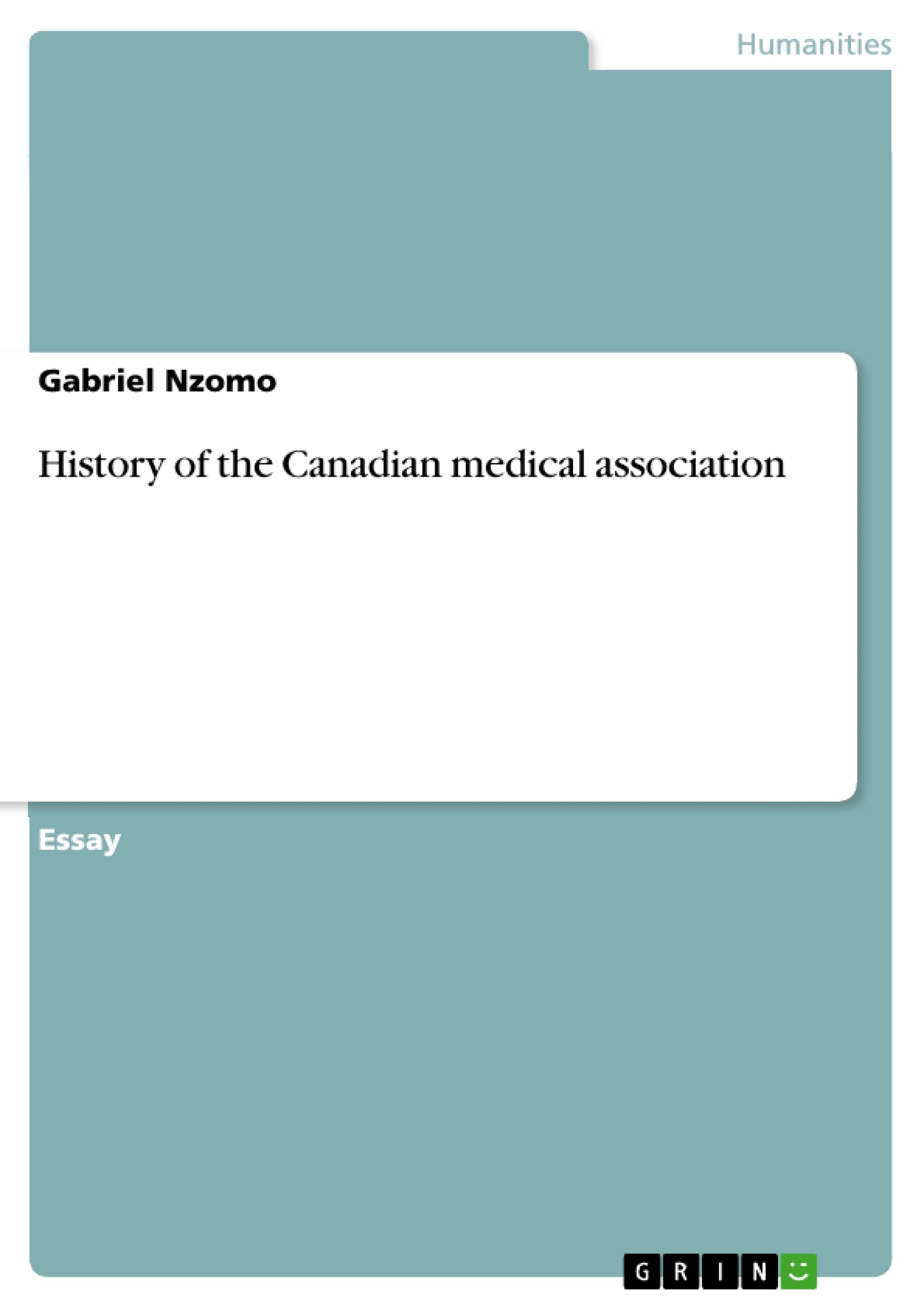The Canadian Medical Association (CMA) was founded in 1987, and it was registered as a charitable association. The association was incorporated under the act of not for profit corporations of Canada in 2009. The association has offered support in many charitable programs for the last 30 years since it was established, like financial support for students studying medicines, programing, and research addressing physical health like the CPHI and its offering medical outreach regionally. The association operated under the institute of physical health of Canada up to 2016.
Still, it registered itself as an independent entity whose aim was to inspire volunteerism and promote health practitioners' generosity. The association has over 75,000 members, and it is established as the most significant association for medical experts within Canada. Its membership consists of medical learners and physicians.
Inhaltsverzeichnis (Table of Contents)
- The Canadian medical association
- The Organization of Canadian Medical Association
- The mission of the Canadian Medical Association
- Vision
- History of Canadian medical association
- Achievements of CMA
- Advocacy of CMA
Zielsetzung und Themenschwerpunkte (Objectives and Key Themes)
The Canadian Medical Association (CMA) is a charitable organization dedicated to promoting health and wellness in Canada. It supports charitable programs, advocates for health policy, and provides ethical guidance to physicians.
- Promoting health and wellness in Canada
- Advocating for health policy
- Supporting charitable programs
- Providing ethical guidance to physicians
- Encouraging volunteerism and generosity among health professionals
Zusammenfassung der Kapitel (Chapter Summaries)
- The Canadian medical association: This chapter introduces the CMA, its founding, and its mission to promote volunteerism and generosity among health professionals. The CMA supports charitable programs both in Canada and internationally, and also provides services to families and physicians.
- History of Canadian medical association: This chapter details the history of the CMA, from its founding in 1884 by Dr. Joseph Painchaud and other Quebec physicians. The chapter describes the CMA's early challenges and eventual success in becoming a national organization. It also highlights the association's code of ethics, which has been a guiding document for Canadian physicians since 1968.
- Achievements of CMA: This chapter outlines the CMA's accomplishments in advocating for public health, including its role in combating the Spanish flu, SARS, and H1N1 influenza pandemics. It also highlights the CMA's contributions to cancer research and awareness, its efforts to warn the public about the dangers of tobacco use, and its support for medical assistance in dying (MAID) legislation.
- Advocacy of CMA: This chapter discusses the CMA's advocacy efforts on behalf of its members and the Canadian public. The CMA advocates for improved access to healthcare, quality senior care, pharma care, and mental health services for youth. It also actively promotes the use of virtual care and other advancements in technology to improve healthcare delivery.
Schlüsselwörter (Keywords)
Key terms and concepts related to the Canadian Medical Association include: healthcare advocacy, public health, medical ethics, charitable organizations, volunteerism, physician-assisted suicide, virtual care, and senior care.
- Quote paper
- Gabriel Nzomo (Author), History of the Canadian medical association, Munich, GRIN Verlag, https://www.grin.com/document/1023648




